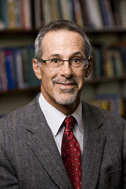The fifth Introducing series post is all about new Editorial Board member David Walt. We’re very pleased to welcome David to the board and here he introduces his background and research vision:
David R. Walt is Robinson Professor of Chemistry, Professor of Biomedical Engineering, Professor of Genetics, and Professor of Oral Medicine at Tufts University and is a Howard Hughes Medical Institute Professor. Dr. Walt is the Founding Scientist of Illumina, Inc. and has been a Director and Chairman of its Scientific Advisory Board since 1998. Dr. Walt is also the Founding Scientist of Quanterix Corporation and has been a Director and Chairman of its Scientific Advisory Board since 2007. He has received numerous national and international awards and honors for his fundamental and applied work in the field of optical sensors and arrays. Dr. Walt is a member of the Board on Chemical Sciences and Technology of the U.S. National Academy of Sciences. He is a member of the U.S. National Academy of Engineering, American Academy of Arts and Sciences, a fellow of the American Institute for Medical and Biological Engineering, and a fellow of the American Association for the Advancement of Science. He received a B.S. in Chemistry from the University of Michigan and a Ph.D. in Chemical Biology from Stony Brook University.











